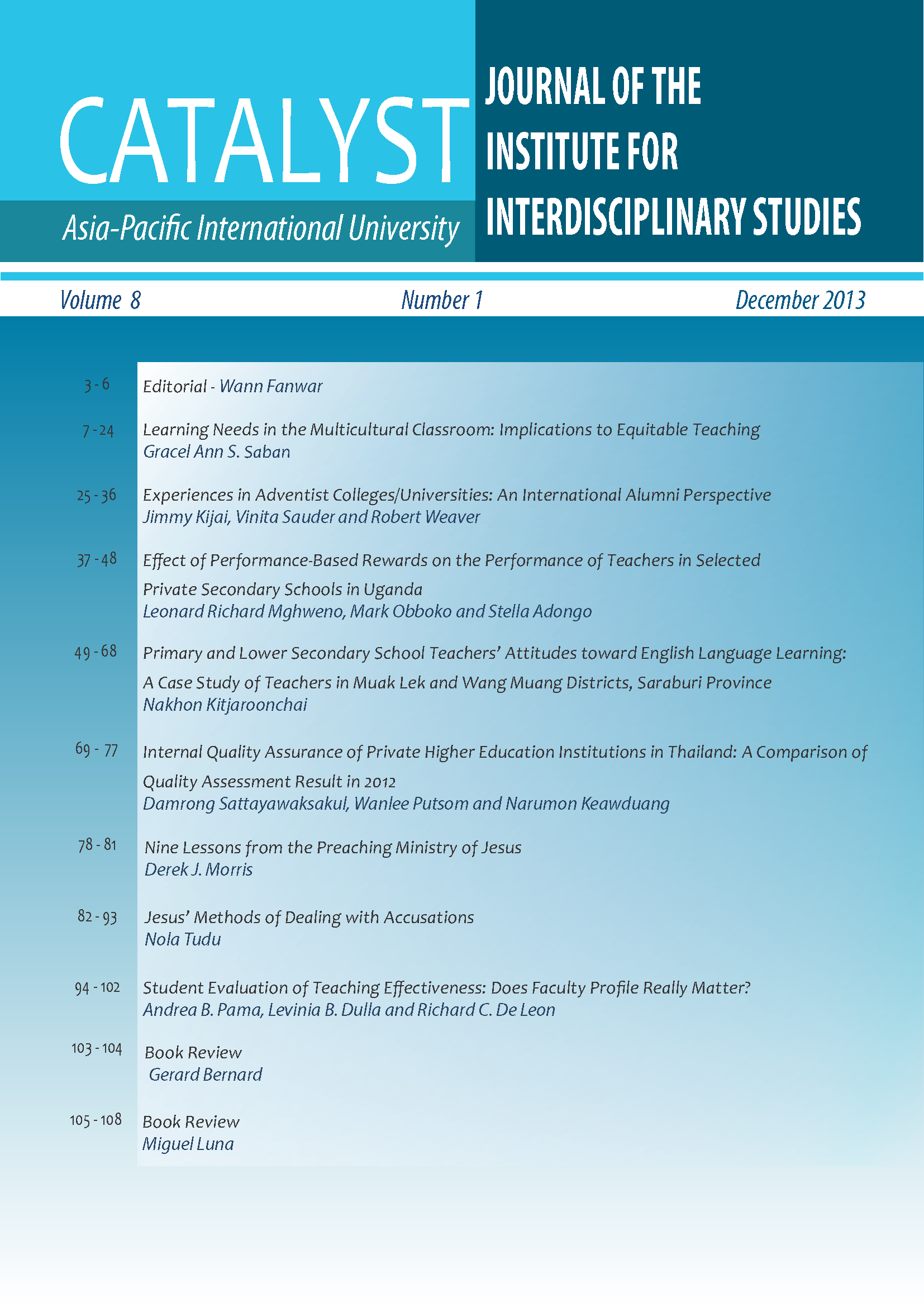Internal Quality Assurance of Private Higher Education Institutions in Thailand: A Comparison of Quality Assessment Result in 2012
Main Article Content
Abstract
This study compared the 2012 IQA assessment results of private higher education institutions in Thailand classified by institutional size, location, and category (local or international institution). In addition, the study compared Internal Quality Assurance (IQA) results and overall External Quality Assessment (EQA) results of private higher education institutions in Thailand with the performance of Asia-Pacific International University. The findings revealed that first, the overall level of internal quality assurance was at the ‘very good’ level: the institution received ‘very good’ level scores for six components. Second, there was a statistically significant difference of quality level in Administration and Management component related to differences in institutional size. Third, institutions located outside of the Bangkok Metropolitan Region had higher scores in Student Development Activities. Fourth, no differences in quality level between institutions emphasising Thai and English (international) medium programmes were found. Fifth, there was no relation between the quality levels of the IQA and EQA systems. Finally, the study found a high quality level of education in terms of inputs and processes at AIU when compared with other private higher educational institutions.
Article Details

This work is licensed under a Creative Commons Attribution-NonCommercial-NoDerivatives 4.0 International License.
Copyright: Asia-Pacific International University reserve exclusive rights to publish, reproduce and distribute the manuscript and all contents therein.
References
Ministry of Education Thailand. (1999). The National Education Act of 1999. Bangkok: Author.
OECD (2010), Learning our lesson: Review of Quality Teaching in Higher Education, Vol. 1, OECD, Paris.
Office of Higher Education Commission (OHEC). (2008). Manual for the Internal Quality Assurance for Higher Education Institutions. Bangkok, Thailand: Author.
Office of National Educational Standards and Quality Assessment (ONESQA). (2012). Manual for the third round of external quality assessment. Bangkok: Author.
Philip G. Altbach,P., G. and Umakoshi, T. (2004). Asian Universities: Historical Perspectives and Contemporary Challenges. Maryland: The Johns Hopkins University Press.
Pittiyanuwat, S. (2008). An overview of quality assessment in Thailand. International Journal of Quality Assurance and Accreditation, 1(1).
Pittiyanuwat, S. (2009). The amicable assessment in education quality assurance. International Journal of Quality Assurance and Accreditation, 1(2).
Saelao, R. (2013). The Logic of the Thai Higher Education Sector on Quality Assessment Policy. Unpublished Ph.D. dissertation, Columbia University.
UNICEF (2000). Defining Quality in Education. The International Working Group on Education, UNICEF, Italy.
Wongsothorn, T. (1999). Quality assurance for higher education in Asia and the Pacific. SEAMEO Regional Centre for Higher Education.


